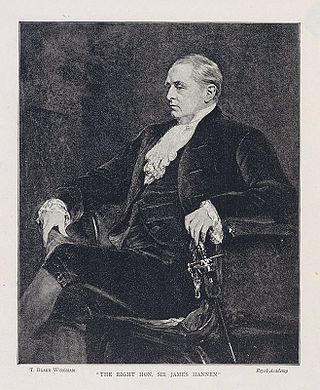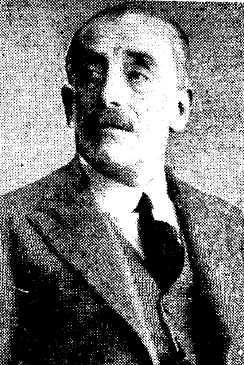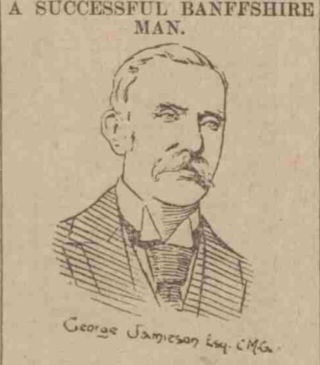
James Hannen, Baron Hannen, PC, FRS was an English barrister and judge.

Charles Wycliffe Goodwin (1817–1878) was an English Egyptologist, bible scholar, lawyer and judge. His last judicial position was as Acting Chief Judge of the British Supreme Court for China and Japan.

Britain had a functioning consular service in Japan from 1859 after the signing of the 1858 Anglo-Japanese Treaty of Amity and Commerce between James Bruce, 8th Earl of Elgin and the Tokugawa Shogunate until 1941 when Japan invaded the British colonial empire and declared war on the United Kingdom.

The British Supreme Court for China was a court established in the Shanghai International Settlement to try cases against British subjects in China, Japan and Korea under the principles of extraterritoriality.

Sir Hiram Shaw Wilkinson, JP, DL (1840–1926) was a leading British judge and diplomat, serving in China and Japan. His last position before retirement was as Chief Justice of the British Supreme Court for China and Corea.

Hiram Parkes "Harrie" Wilkinson, KC served as Crown Advocate of the British Supreme Court for China and Japan from 1897 to 1925. He was also Acting Assistant Judge of the British Court for Siam from 1903 to 1905 and Judge of the British High Court of Weihaiwei from 1916 to 1925.

Sir Havilland Walter de Sausmarez, 1st Baronet was a judge of various British colonial or consular courts in Africa and Asia, the Ottoman Empire and China. His last judicial position before retirement was chief judge of the British Supreme Court for China. He later served as bailiff of Guernsey.

Nicholas James "Beau" Hannen OBE (mil) was a British actor of the early and mid-20th century who acted in a number of stage plays and films.
The British Court for Japan was a court established in Yokohama in 1879 to try cases against British subjects in Japan, under the principles of extraterritoriality. The court also heard appeals from British consular courts in Japan. Appeals from the British Court for Japan lay to the British Supreme Court for China and Japan based in the Shanghai International Settlement.

Sir Edmund Grimani Hornby was a leading Italian British judge, with family interests in diamond-rich Antwerp. He was the founder and Chief Judge of both the British Supreme Consular Court at Constantinople and British Supreme Court for China and Japan.
Alexander Myburgh (1848–1889) was a British barrister who served as the chairman of the Shanghai Municipal Council from 1883 to 1884.

Sir Peter Grain was a British judge who served in Zanzibar, Egypt, Constantinople and China. He was the Chief Judge of the British Supreme Court for China from 1927 to 1933 and also judge of the High Court of Weihaiwei from 1926 to 1930.

Sir Richard Temple Rennie was a British barrister and judge who served in China and Japan. He was the Chief Justice of the British Supreme Court for China and Japan from 1881 to 1891. He was judge of the British Court for Japan from its creation in 1879 to 1881.

Sir Allan George Mossop was a British judge of South African origin who served in China. He was the Chief Judge of the British Supreme Court for China from 1933 to 1943.
Robert Anderson Mowat, was a British judge and diplomat, serving in China and Japan. His last position before retirement was as Judge of the British Court for Japan.
George French (1817–1881) was a British judge. He was the Chief Justice of both the Supreme Court of Sierra Leone and the British Supreme Court for China and Japan.

Sir Frederick Samuel August Bourne (1854–1940) was a British judge, diplomat and botanist who served in China. His last positions before retirement were concurrently as Assistant Judge of the British Supreme Court for China and Judge of the High Court of Weihaiwei.

Gilbert Walter King OBE was a British judge who served in China. His last position before retirement was as Assistant Judge of the British Supreme Court for China.

John McNeil QC (1899–1982) served as the last Crown Advocate of the British Supreme Court for China from 1940 to 1942. He also served as the Chairman of the Hong Kong Bar Association on three occasions in the 1950s.

George Jamieson CMG (1843-1920) was a British diplomat and judge who served in China. His last position before retirement from government service was as British Consul-General in Shanghai.
















